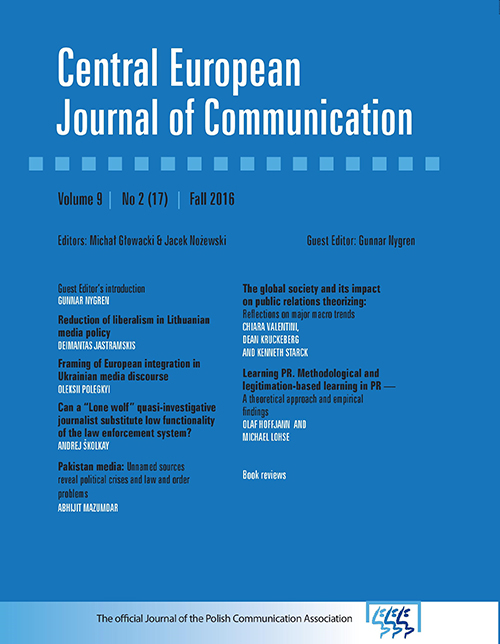Variations in media freedom: Why do some governments in Central and Eastern Europe respect media freedom more than other ones?
Variations in media freedom: Why do some governments in Central and Eastern Europe respect media freedom more than other ones?
Author(s): Péter Bajomi-LázárSubject(s): Social Sciences, Communication studies
Published by: Wydawnictwo Uniwersytetu Wrocławskiego
Keywords: clientelism; media capture; media freedom; party colonization of the media; party systems; state capture
Summary/Abstract: It is argued in this paper that the relative deficit of media freedom in most of Central and Eastern Europe as opposed to the relative freedom of the media in most of Western Europe is ultimately rooted in the specificities of the former communist countries’ party systems. Young parties in young democracies lack the resources needed for party building and organization, which they compensate for by colonizing the state and the media and by exploiting state and media resources; party colonization of the media necessarily inhibits media freedom. It is further argued that temporal and spatial variations in media freedom in and across Central and Eastern Europe are explained by different patterns of media colonization. The more centralized the governing party’s or parties’ decision-making structures, the greater the likelihood of one-party colonization, and the more fragmented the governing party’s or parties’ decision-making structures, the lesser the likelihood of such colonization; one-party colonization of the media leads to lower levels of media freedom than multi-party colonization. In other words, the weaker the government, the more freedom the media have.
Journal: Central European Journal of Communication
- Issue Year: 8/2015
- Issue No: 14
- Page Range: 4-20
- Page Count: 17
- Language: English

